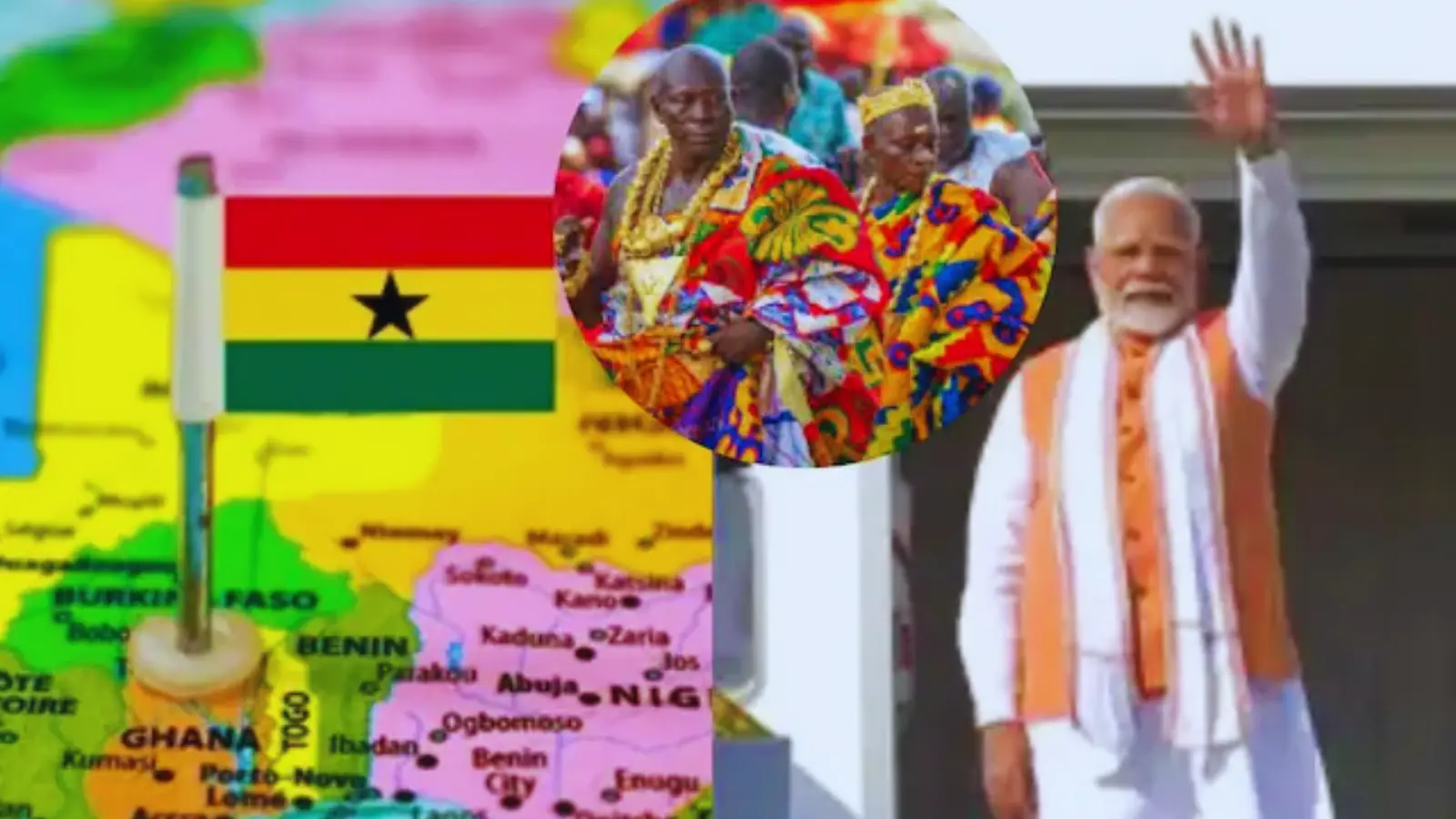By News18
Ghana is a country many may have only encountered in textbooks or headlines, but its rich culture, complex history, and unique traditions deserve a closer look. In light of Prime Minister Narendra Modi’s visit, here are 10 intriguing facts about Ghana that not only expand our general knowledge but also offer a refreshing perspective on Africa’s diversity.
Africa’s First Independent Nation: Ghana, formerly known as the Gold Coast, was the first African country to gain independence from colonial rule. It achieved freedom from British governance on March 6, 1957, becoming a beacon of hope and inspiration for other African nations seeking liberation.
The Meaning Behind ‘Ghana’: The name ‘Ghana’ originates from the Mande and Soninke languages and translates to ‘Warrior King’. It draws its name from an ancient empire that flourished in West Africa between the 6th and 13th centuries.
History of Slavery: Ghana played a central role in the trans-Atlantic slave trade. Historic forts such as Cape Coast and Elmina still stand as solemn reminders of the thousands of Africans who were forcibly taken to Europe and the Americas.
Volta Lake: Ghana is home to Lake Volta, the largest man-made lake in the world. Spanning 520 kilometres, it is vital to the country’s energy production and transport infrastructure.
Day-Based Naming Traditions: In Ghanaian culture, particularly among the Akan people, children are named according to the day of the week on which they are born. For example, a boy born on Sunday is named ‘Kwasi’, while a girl is called ‘Akosua’. These names are believed to reflect a person’s character and destiny.
The Legacy of Kente Cloth: Kente cloth, with its colourful and intricate patterns, is one of Ghana’s most recognisable cultural symbols. Traditionally handwoven, it is worn on special occasions and symbolises pride, heritage, and unity.
Fantasy Coffins: Ghana’s funeral traditions are known for their creativity. Coffins are often designed to reflect the deceased’s profession or passion; for example, fish-shaped for fishermen and aeroplane-shaped for pilots.
The Anglo–Ashanti Wars: Between 1823 and 1900, five major conflicts, known as the Anglo–Ashanti Wars, took place between the Ashanti Empire and British colonial forces. These wars played a pivotal role in Ghana’s historical resistance to colonisation.
‘Kwashiorkor’: The medical term ‘Kwashiorkor’, denoting severe malnutrition caused by protein deficiency, comes from the Ga language spoken in Ghana. It has since been adopted into global medical terminology.
A Unique World Record: In 1991, Ghana’s Ferdie Ato Adoboe set a world record by running 100 metres backwards in just 13.6 seconds. He also ran the 100-yard race backwards in 12.7 seconds in 1983, showcasing Ghana’s unusual athletic feats.
